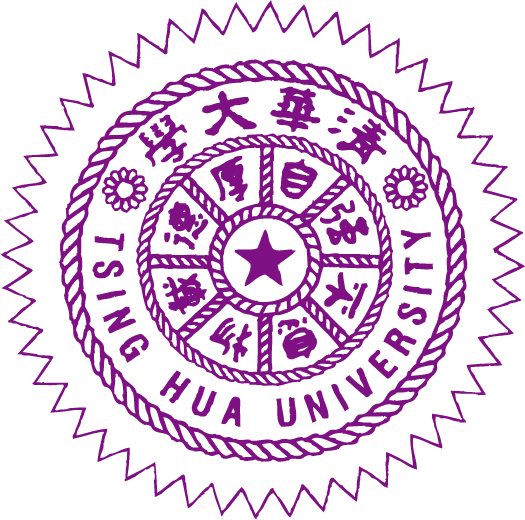Biomaterials Laboratory for Tissue Engineering and Drug/Gene Delivery
Research Field
Hsing-Wen Sung holds the prestigious positions of National Chair Professor and Tsing Hua Distinguished Chair Professor in the Department of Chemical Engineering/Institute of Biomedical Engineering at National Tsing Hua University. He earned his Ph.D. from the Department of Chemical Engineering/Biomedical Engineering Program at the Georgia Institute of Technology in May 1988. Professor Sung's research focuses on biomaterials, tissue engineering, and drug/gene delivery. His outstanding contributions have garnered him several accolades, including being recognized as a Fellow of the National Academy of Inventors (NAI), Fellow of the American Institute for Medical and Biological Engineering (AIMBE), and Fellow of the International Union of Societies for Biomaterials Science and Engineering (IUSBSE). He is also an Academician of the Asia Pacific Academy of Materials (APAM). In addition to these distinctions, Professor Sung has received esteemed awards such as Elsevier 2015 Biomaterials Best Paper Award and the 2016 TERMIS-AP Outstanding Scientist Award. Professor Sung's significant contributions extend to his editorial roles, serving on the Editorial/Advisory Boards of prestigious journals like the Journal of Controlled Release, Advanced Healthcare Materials, and Advanced Materials. Furthermore, he has been a Handling Editor for Biomaterials. With a remarkable publication record, Professor Sung has authored 304 scientific papers and holds an impressive 136 international patents. His research has left a substantial impact, evident in over 33,033 citations and an h-index of approximately 98, as reported by Google Scholar.
Dr. Sung's research encompasses biomaterials, with a primary focus on oral drug/gene delivery, nanomedicine, and myocardial tissue engineering. Here is a succinct overview of his active research areas and industry collaborations: Oral Drug/Gene Delivery: Dr. Sung is a distinguished authority in oral drug and gene delivery, with a notable track record of accomplishments. He has pioneered innovative oral delivery systems for therapeutic biologics like insulin protein, insulin gene, and exenatide, which have shown promise for clinical applications in glucose control. These techniques encompass the use of chitosan and its derived nanoparticles, along with the development of self-assembled bubble-generating nanocarriers. Nanomedicine: Dr. Sung's recent research efforts have been geared towards pioneering advancements in oral drug/gene delivery. A standout development is the conceptualization of an oral mRNA LNP vaccine, incorporating β-glucans as both an adjuvant and a protective agent. This innovative approach targets intestinal antigen-presenting cells within the lymphatic system, eliciting potent immune responses applicable to cancer immunotherapy. This groundbreaking technology has recently been honored with the Moderna Taiwan RNA Innovation Award. Additionally, the company will facilitate expert guidance from industry professionals to assess its potential for industrialization. Dr. Sung's work in designing a gut-to-brain prodrug system functionalized with β-glucans has shown remarkable effectiveness in orally delivering anticancer drugs and inhibiting brain tumor growth in mouse models, marking a significant advancement in cancer therapeutics. These outstanding outcomes have drawn the attention of EVX Ventures, a biotech venture capital firm with bases in Singapore and Boston. They are exploring opportunities for potential new ventures or licensing agreements tied to this groundbreaking achievement. Myocardial Tissue Engineering: Dr. Sung leads a highly skilled team specializing in myocardial tissue engineering and regenerative medicine. Their collaborative expertise, spanning over fifteen years, has resulted in significant breakthroughs. These include pioneering technologies like porous myocardial patches, cell sheets, cell bodies, and other innovative cell delivery vehicles. These advancements hold immense potential in facilitating tissue regeneration and bolstering ventricular function recovery post-myocardial infarction. Dr. Sung is presently collaborating with a University of Toronto team to study thermos-responsive hydrogels/patches for correcting irregular heart rhythms in atrial fibrillation. In summary, Dr. Sung's influential research has made seminal contributions to oral drug and gene delivery, nanomedicine, and myocardial tissue engineering. His impressive record of publications, patents, technology transfer, and clinical translation highlights the practical impact of his work on both academic and industrial fronts.
Please see the above Lab's introduction.
2. Award(s) and Honor(s) International Honors and Awards 2006 American Institute for Medical and Biological Engineering (AIMBE), Fellow 2008 International Union of Societies for Biomaterials Science and Engineering, Fellow 2013 Academician of Asia Pacific Academy of Materials (APAM), Fellow 2015 ELSEVIER 2015 Biomaterials Outstanding Paper Award 2015 Biomaterials (IF 14.0), Associate Editor 2016 Tissue Eng and Regen Medicine International Society–AP, Outstanding Scientist Award 2023 Moderna Taiwan mRNA Innovation Award
Domestic Honors and Awards 2002、2009、2012年 國科會傑出研究獎 (共3次) 2007年 清華大學傑出教學獎 2008年 侯金堆研究傑出榮譽獎 (材料科學類) 2012、2015、2019年 教育部學術獎(第56屆) 國家講座主持人 (第19、23屆共2次 工程組) 2013年 第十一屆有庠科技講座 (奈米科技類) 2015年 第二十二屆東元獎 (化工/材料科技類) 2019年 財團法人中技社化工學術獎、108年度中山學術著作獎 2022年 第32屆 王民寧獎 |
B.Sc., Chemical Engineering, Tunghai University, Taiwan, 9/1976–6/1980
Ph.D., Chemical Engineering/Biomedical Engineering Program, Georgia Tech, 9/1983–5/1988
2 Vacancies
Job Description
Biomaterials for tissue engineering or drug/gene delivery
Preferred Intern Education Level
Master or PhD students
Skill sets or Qualities
with Chemistry, Materials, Life Sciences, or Biomedical Engineering backgrounds
